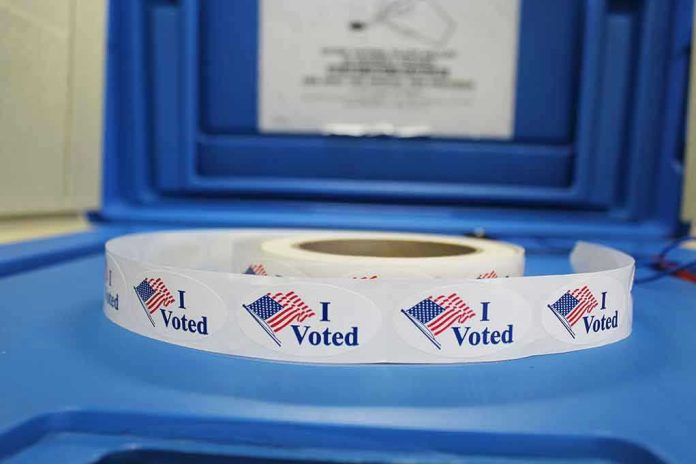
A pivotal Supreme Court case may redefine mail-in voting rules, challenging state laws and potentially disenfranchising millions of voters.
Story Snapshot
- The Supreme Court will hear *Watson v. RNC*, challenging mail-in ballot grace periods.
- Mississippi’s law allowing ballots postmarked by Election Day to be counted if received within five days is under scrutiny.
- The outcome could affect 16 other states and Washington, D.C., impacting millions of voters.
- The case highlights tensions between state election powers and federal law uniformity.
Supreme Court to Rule on Mail-In Ballot Deadlines
The U.S. Supreme Court is set to hear *Watson v. RNC*, a case that could redefine the rules for counting mail-in ballots. Mississippi’s law, enacted in 2020, permits counting ballots postmarked by Election Day if they arrive within five business days. The Republican National Committee (RNC) argues this law conflicts with federal statutes mandating a single Election Day. The decision could set a precedent, influencing similar laws in 16 other states and Washington, D.C.
Mississippi’s legislation was initially passed to prevent disenfranchisement due to postal delays, particularly for voters relying on mail-in ballots, such as military personnel and overseas citizens. However, the RNC and others have challenged these grace periods, citing concerns over election integrity and the potential for delayed results. The Supreme Court’s decision will have profound implications for how states can manage their elections while maintaining federal standards.
Potential Impacts on Voter Access and Election Integrity
The case has sparked national debate over election integrity and voter access. If the Supreme Court rules against grace periods, states might be forced to amend their election laws, potentially disenfranchising voters who mail their ballots on time but face postal service delays. This decision could especially impact military, disabled, and absentee voters who rely heavily on mail-in voting. Critics argue that removing grace periods will add an administrative burden on election offices and decrease voter turnout.
Supporters of the RNC’s position believe that strict adherence to a single Election Day is essential for maintaining election security and ensuring timely results. Meanwhile, those favoring the grace period emphasize the importance of counting every eligible vote, particularly in light of logistical challenges faced by voters in remote areas or serving overseas.
Broader Implications and Stakeholders
The Supreme Court’s ruling will have far-reaching consequences beyond Mississippi. It will influence national discussions about federal versus state control over election procedures. The case highlights the ongoing tension between ensuring all eligible votes are counted and maintaining uniform election standards. The decision will affect not only voters but also election officials and the postal service, which may face increased scrutiny regarding delivery times if grace periods are eliminated.
Me @NRO: Supreme Court Takes On Major Mail-In Ballots Case https://t.co/mjsfS5RSQS
— Dan McLaughlin (@baseballcrank) November 11, 2025
As the nation awaits the Supreme Court’s ruling, the outcome will likely intensify partisan debates over election laws and voter access. Legal experts and advocacy groups are closely monitoring the case, recognizing its potential to reshape the landscape of American electoral politics.
Sources:
U.S. Supreme Court to Hear Critical Case on Mail Ballot Deadlines




